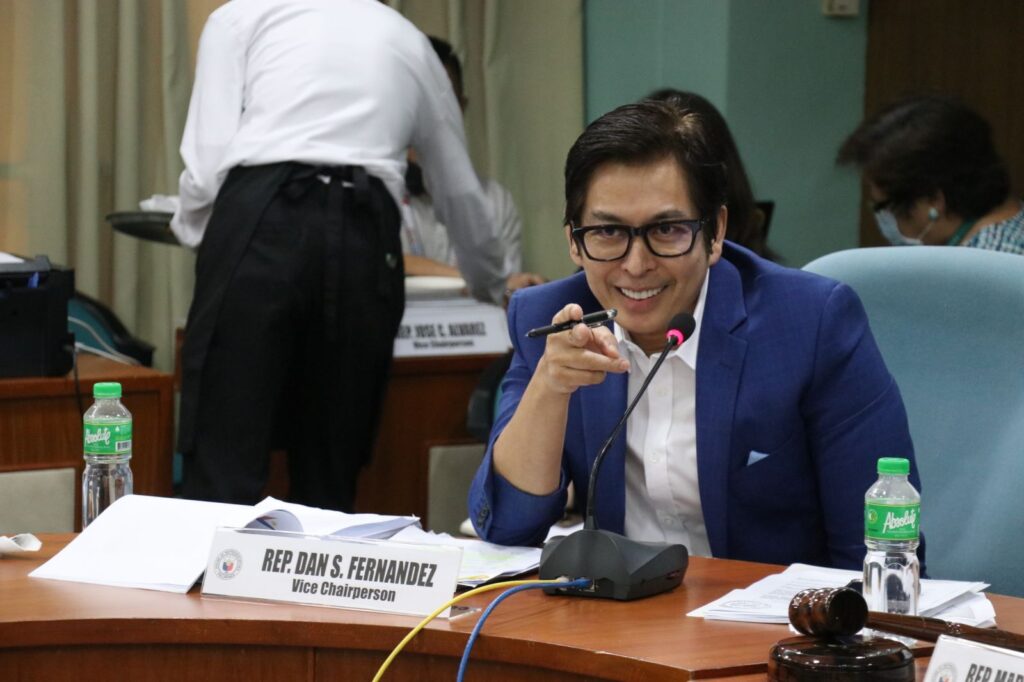
Sta. Rosa City Rep. Dan Fernandez | PHOTO: Official website of the House of Representatives / congress.gov.ph
MANILA, Philippines — Rep. Dan Fernandez of Santa Rosa City is seeking Senate approval for any upcoming pandemic policies or regulations, which could result in “medical martial law,” that the World Health Organization (WHO) might impose on 194 member states, including the Philippines.
Fernandez said that the process of adopting two WHO legal instruments for reforms in handling pandemics has been “shrouded in secrecy with the negotiations taking place behind closed doors and at tremendous speed and with their existence not being reported.”
Both documents, he claimed, would be finalized and voted on by the WHO member states in May 2024 and take effect in May 2025.
The lawmaker filed House Bill No. 9563, or the proposed No WHO Pandemic Preparedness Treaty Without Senate Approval Act, which would require all international health agreements and regulations to be scrutinized and approved by the Senate before implementation.
Fernandez noted that negotiations among WHO member countries have been ongoing since 2021 for the crafting of a new Pandemic Treaty and amendments to International Health Regulations, which are intended to introduce reforms in the management of pandemics.
“Aiming for its advice to become legally ‘binding’ on the part of member states, the WHO is not only seeking the right to declare recommendations by several health experts as mandatory but also the power to impose on the people all kinds of access restrictions, lockdowns, surveillance, and experimental treatments,” he said.
“Aiming for its advice to become legally ‘binding’ on the part of member states, the WHO is not only seeking the right to declare recommendations by several health experts as mandatory but also the power to impose on the people all kinds of access restrictions, lockdowns, surveillance, and experimental treatments,” he said.
“The WHO further reserves and assumes the right to define various health situations and to control all information related to health, including the right to censorship and interfere in social communications, with no provisions for a mechanism that will allow member states to challenge WHO’s assessments when it comes to public health emergencies of international concern and the measures to be undertaken,” the lawmaker said.
‘Medical martial law’
“Such recent developments do not bode well not only for health but also for democracy. Some sectors have observed that this ‘medical martial law’ is an uncanny characteristic of a possible dystopian dictatorial future and that such a ‘power grab’ by the WHO presents a clear and present danger to national sovereignty, the right to self-determination, and to our people’s right to informed consent,” he said.
According to Fernandez, several countries have been claiming WHO mismanagement of the COVID-19 pandemic including unjustified delay in informing member states about the potentially serious disease outbreak in Wuhan, China; and repeated grossly inaccurate or misleading claims on the transmission of the virus and on the Chinese government’s handling of the outbreak.
He stressed: “In view of the lingering doubts as to the competence or integrity of the WHO and of its recent drive to be granted almost unbridled authority or supranational power to handle future pandemics, there is a compelling need to require any and all international health covenants, agreements, or regulations to pass through the scrutiny of our Senate.”
RELATED STORIES
Rama welcomes WHO’s declaration that COVID-19 is no longer a global health concern
DOH slammed for ignorance of deadline in WHO charter amendments